Digital Nomad Guide to Living in Lanzarote (+ Vanlife Tips)
Explore our comprehensive Digital Nomad Guide to Lanzarote for insights on local culture, best work spots, van life, and visa requirements.


Ever imagined working with a breathtaking view of the sea, enjoying mild weather even in December, and taking a refreshing swim right after wrapping up your workday? Well, this isn't a fantasy from Peter Pan's Neverland — it's a reality much closer than you might think.
Welcome to the Canary Islands, a surfer's haven, a nature enthusiast's dream, and a health lover's paradise. This Spanish archipelago has rapidly become a favorite among digital nomads, all thanks to its splendid year-round climate and remote work-friendly infrastructure.
In this comprehensive guide, I'll share my personal experiences and provide you with all the essential information about Lanzarote, the oldest island and one of the most enchanting places in the Canaries. Whether you're into surfing, crave outdoor adventures, or simply want a serene spot to focus on your work, Lanzarote has something special for you.
So, let's dive into what makes this island a perfect digital nomad destination!
Living as a Digital Nomad in Lanzarote: Pros and Cons
Before we delve into what it's like to live as a digital nomad in Lanzarote, let's quickly weigh up the pros and cons of this unique island.
Besides these pros and cons, it is crucial to mention Lanzarote's one-of-a-kind and genuine vibe. The island's natural splendor, rich local culture, and the serenity of its spots provide an authentic experience, a world away from the bustling crowds and noise found in more tourist-heavy destinations like Tenerife and Gran Canaria.
With unspoiled beaches, picturesque trails, and a fascinating history, Lanzarote invites you to immerse yourself in discovery and exploration. Additionally, the warmth and hospitality of the locals make your stay truly memorable. If you're in search of a destination that beautifully blends natural wonders, genuine culture, and peacefulness, Lanzarote should definitely be on your list.
Now that I've shared why you should choose Lanzarote as your next destination, let’s dive into some practical information that I would have wanted to know before jetting off to the Canary Islands.
How to Get to Lanzarote
Worldwide
The island is served by the Cesar Manrique Airport (ACE), an international hub that links Lanzarote with various parts of the world, primarily Europe. Conveniently situated near the capital, Arrecife, and roughly halfway between the southern and northern parts of the island, the airport is just 7 km from Arrecife's center, a mere 10-minute car ride away.
You'll find that many airlines offer regular flights to the Canary Islands, providing a range of options to suit your schedule and budget. If you're traveling from outside Europe, you might need to catch a connecting flight, typically through mainland Spain or other major European cities, like those in Italy.

From the Other Canary Islands
For those already exploring the Canary Islands, the connections between the islands, especially the closer ones, are frequent and reliable. Ferry services such as Fred Olsen and Naviera Armas run regular trips to Lanzarote from neighboring islands like Fuerteventura. These ferries offer a scenic alternative for hopping between islands. However, if you are short on time, local airlines like Binter Canarias and Canaryfly offer quick flights that will get you to Lanzarote in no time.
Transporation and How to Get Around Lanzarote
When it comes to exploring Lanzarote, my top tip is to rent a car. This is the best way to access even the most secluded and hidden spots on the island. Cicar is a popular and budget-friendly choice in the Canary Islands for car rentals. However, if renting a car seems a bit pricey, public transportation is a viable alternative.
Lanzarote has a decent public bus system that you can use to move between the different towns. Of course, they are not like the ones you can find in many European cities, but they are quite reliable compared to other islands like Fuerteventura.
Best Accommodation Options in Lanzarote
Being a very popular island, Lanzarote offers many different accommodation options to choose from. As a digital nomad who travels light with just a backpack and a laptop, I've found that apartments are usually the best choice. They offer more privacy and help save on meal costs. Sure, dining out at local eateries is a treat, but sometimes whipping up a simple meal can be both wallet-friendly and soul-satisfying.
Apartments and Private Houses - Best for Long-Term Stays
As we said, apartments or private houses are top picks for digital nomads, whether you're a solo traveler or a nomad family with more specific needs for your children. Choosing the right location is key because, while the island is small and easy to navigate, a well-chosen base can minimize travel time, especially when juggling work deadlines!
Arrecife
For those who prefer a bustling, well-serviced area, Arrecife, the island's largest city, is a great choice. It's more hectic but has everything you need. Located on the east coast, close to the airport, it's a transportation hub, making it easy to explore other famous spots on the island.
Costa Teguise
If a serene seaside setting is more your style, I highly recommend Costa Teguise. Its seafront promenade is delightful any time of the day, with plenty of dining and drinking options. The area is relaxed and safe, featuring family-friendly beaches and local markets for all your necessities.
Famara
For surfers or those who love a more "wild" lifestyle, the small town of Famara on the west coast is ideal. It's a bit frozen in time, with sandy streets and a focus on surf culture. Nestled in a nature reserve, it offers a blend of natural beauty and simplicity, which I'll delve into more later.
Hotels - Best for Short Stays
If you're not planning a long stay in Lanzarote, hotels are the way to go. There are options for every budget, especially in tourist areas like Playa Blanca or Puerto del Carmen, which offer beautiful beaches and convenient work spots. Playa Blanca, in the south, is a ferry ride away from Fuerteventura, perfect for island hopping. Puerto del Carmen, centrally located along the east coast, is a stone’s throw from the airport and Arrecife.
Internet Connectivity in Lanzarote
4G/5G Connectivity
In Lanzarote, staying connected is super easy thanks to the island's strong and reliable 4G coverage. Whether you're wandering along the remote shores of Famara or hiking up a volcano, you can count on solid internet access. For those of you needing extra speed, 5G is available in the main urban areas. It's super fast, making it perfect for video calls or streaming data.
eSIM
For the tech-savvy nomads, eSIMs are a fantastic choice in Lanzarote. I used them throughout my stay. They allow you the freedom to select your provider and data plan without the hassle of a physical SIM card. Airalo and Holafly offer some of the best eSIM plans in the Spanish territory, including the Canary Islands.
Local Physical SIMs
If you prefer the traditional approach, getting a local SIM card in Lanzarote is easy and convenient. Providers like Movistar, Orange, and Vodafone offer different data plans for short-term and long-term stays. With a local SIM, you will benefit from constant coverage and can easily top up when needed.
Best Places to Work From in Lanzarote
In Lanzarote, finding a place to work other than your accommodation can be a bit tricky. This is not due to Wi-Fi issues — that's widely available — but more about finding that stimulating or quiet environment needed for video calls or deep work. Here are some personal recommendations from my time spent working remotely on the island.
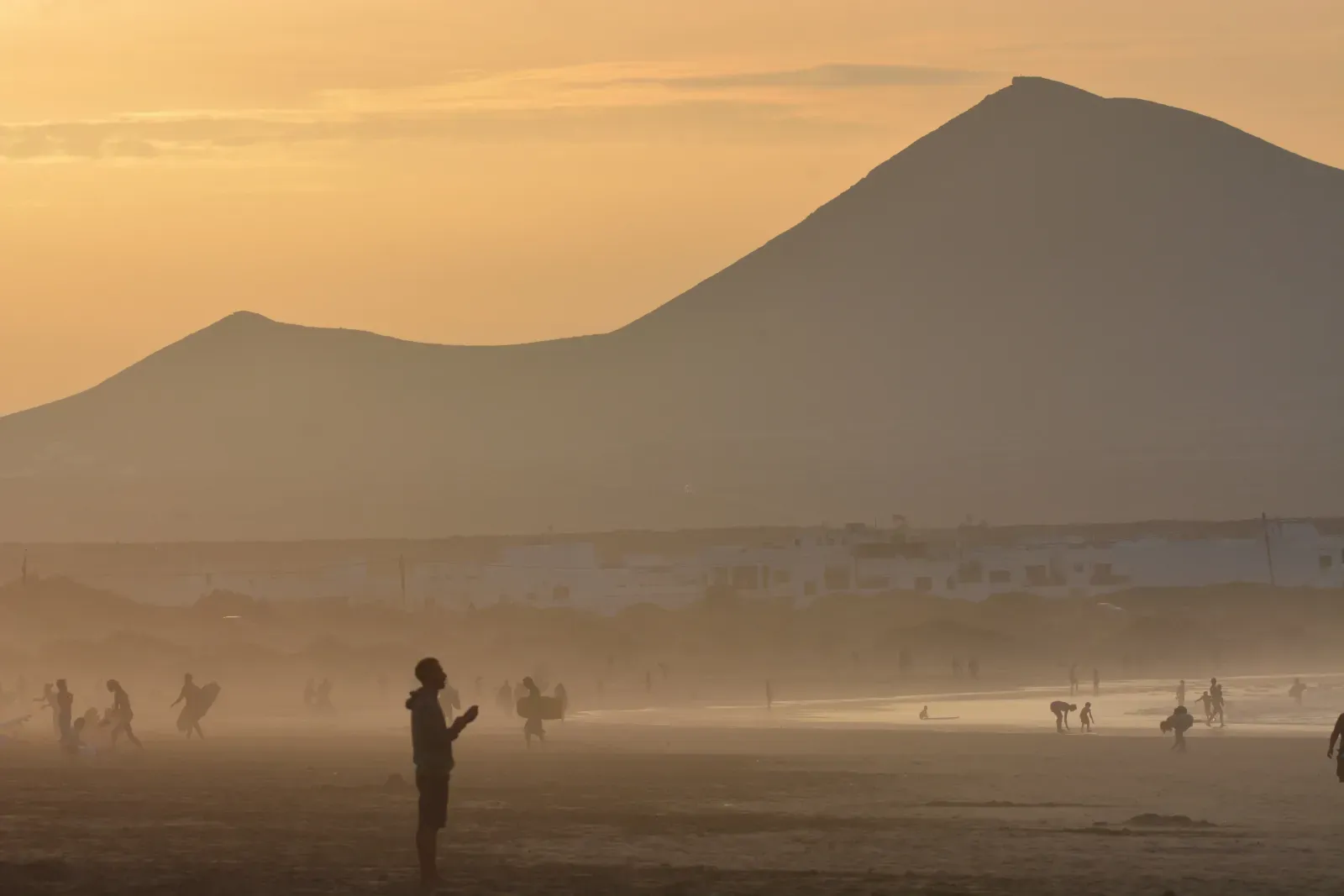
Coworking Spaces
The island doesn't boast many In Lanzarote, finding a place to work other than your accommodation can be a bit tricky., and their opening hours are limited. Here's a rundown:
- Area 0 - Co-working Lanzarote: Located in Puerto del Carmen near the airport and Arrecife, it offers a rare seaside view and is open from 8:00 to 20:00.
- The Square Coworking Lanzarote: Found in Arrecife, this space has a modern, minimalistic style but limited hours from 8:00 to 16:00.
- Coworking Guru Lanzarote: Situated in the historic center of Teguise, this spot has great reviews but isn't near the sea. Check with them for variable hours.
Cafes
I personally love working in cafes because it allows me to see how local people live and sometimes I also get to meet other digital nomads in an organic way. Here are some of my favorite cafes across the island:
Playa Blanca (South Lanzarote)
- Cappuccino Grand Cafe: Run by Italians, this café offers great food, reliable Wi-Fi, and comfy seating with both indoor and outdoor options. It's central but can get noisy.
Costa Teguise (East Lanzarote)
- Cactus Surf and Coffee: it is a small bar that opened a few months ago and is associated with a surf school that holds its lessons in Famara. The owner Emilia is super kind and makes the best espresso on the island. It's on the seafront, so you can enjoy the view while you work.
- Champs Sports Bar: Part of the Barcelò hotel, open to all. Good Wi-Fi and plenty of tables, especially near the power sockets. It's open from 12:00 to 24:00, ideal for those who prefer working in the afternoon. It can be a bit noisy, so I recommend using headphones that isolate you from external noise. In the evening they have live music and broadcast various football matches on the TV.
Famara (West Lanzarote)
- La Mar Café: A typical surfer bar with urban vibes. Located at the start of La Caleta, next to Famara beach. The Wi-Fi is adequate for video calls, and you'll find others working on their laptops in a laid-back atmosphere.
These are the spots where I spent productive hours during my Lanzarote trip and highly recommend for a hassle-free work experience!
Cost of Living in Lanzarote
Lanzarote, like the rest of the Canary Islands, has experienced a rise in living costs recently. Yet, it remains an attractive destination for digital nomads. The expenses are a bit higher compared to some other Canary Islands but are generally affordable, especially when you compare them to places like the USA or UK.
Grocery Costs
You'll find that grocery shopping is relatively cheaper here than on the mainland. A great spot to save some euros is at the Hyperdino supermarket chain. To give you an idea:
- A liter of milk is priced at €1.00.
- Eggs (500 g) are around €0.85.
- A kilogram of chicken breast will set you back €4.99.
- For coffee lovers, 250 g of coffee is about €2.29.
Fuel Costs
If you're driving around, petrol costs approximately €1.27 per liter. Always check out Petrol Prix stations for the best deals.
Gym Memberships and Surfing Lessons
For fitness enthusiasts, gym memberships are surprisingly affordable, ranging from €30 to €50 per month. And if you're keen on riding the waves, surfing lessons vary between €35 to €50 per session.
Culture, Nature and Food in Lanzarote
Outdoor and Adventure Activities
Lanzarote’s nature is stunning and wild, with valleys of lava rock eroded by the wind, showing the harshness of its volcanoes, and beaches of golden sand and clear sea. Black and turquoise coexist here to create postcard-worthy landscapes. And you can visit, enjoy, and appreciate this nature in every corner of the island.
There are various activities you can do, such as trekking on volcanoes, which are the soul of Lanzarote, diving, or the different water sports that are popular here. Among the “strangest” things to do outdoors, I would like to recommend a visit to the Atlantic Museum, the first underwater museum in Europe. It is located in the south, near Playa Blanca, and it is an unusual and adventurous activity that sea and diving lovers cannot miss.
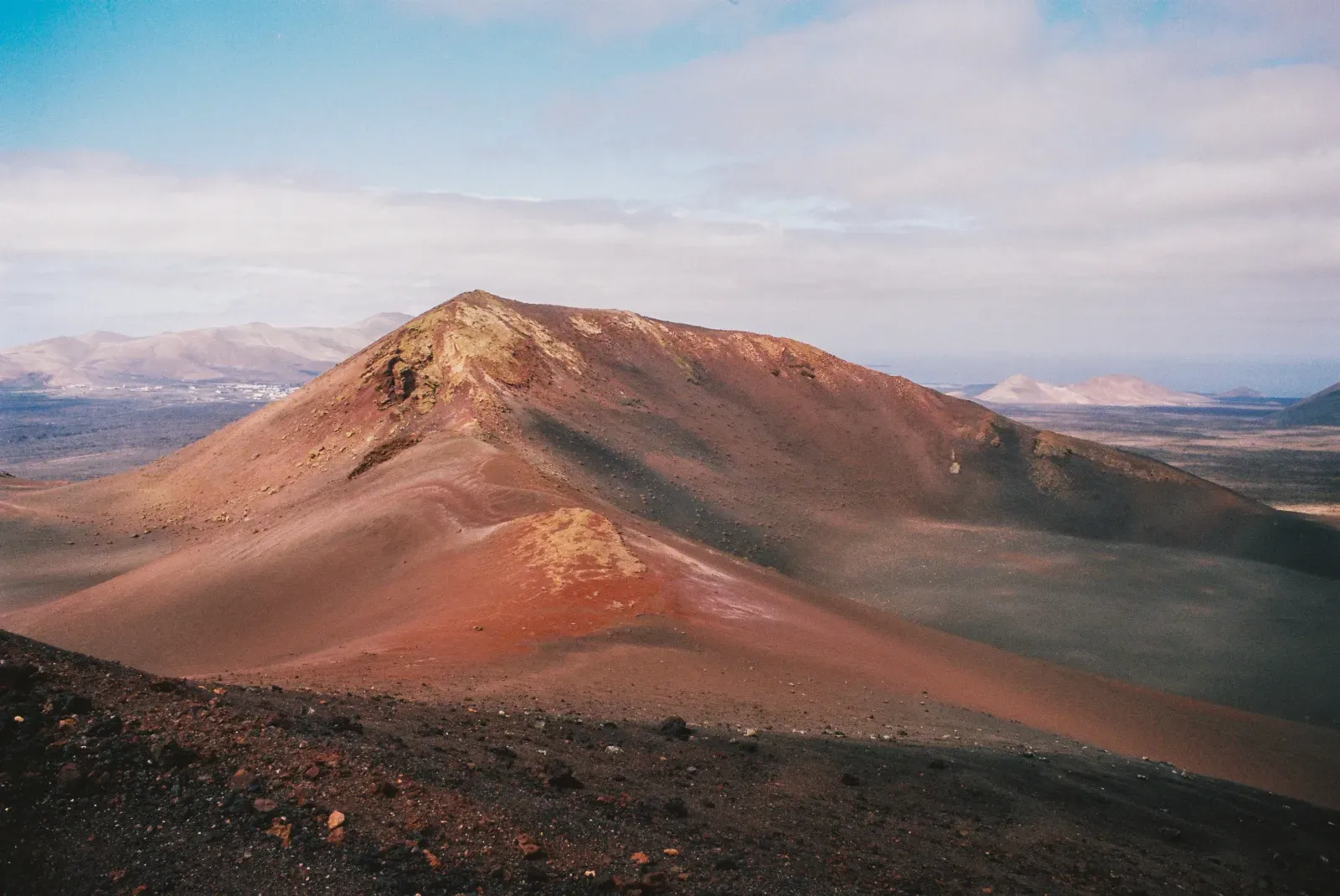
Traditional and Unusual Food
The culinary landscape of Lanzarote, rich with diverse cultural influences, promises a delightful journey for food-loving digital nomads. Among the variety, traditional dishes, some of which are recent culinary innovations, stand out for their unique local flavors.
The most appreciated dish by locals is goat meat, which is a very common animal on farms in the Canary Islands. Goat cheese, which is slightly stronger than cow cheese, is also widely available.
But the real peculiarity lies in the use of cacti as a base food for various recipes. In addition to juices and jams, which are also common in other islands and have a “spicy” flavor - it really feels like it stings the tongue - you can also find the cactus burger at the Cactus Garden.
Best Time to Visit Lanzarote
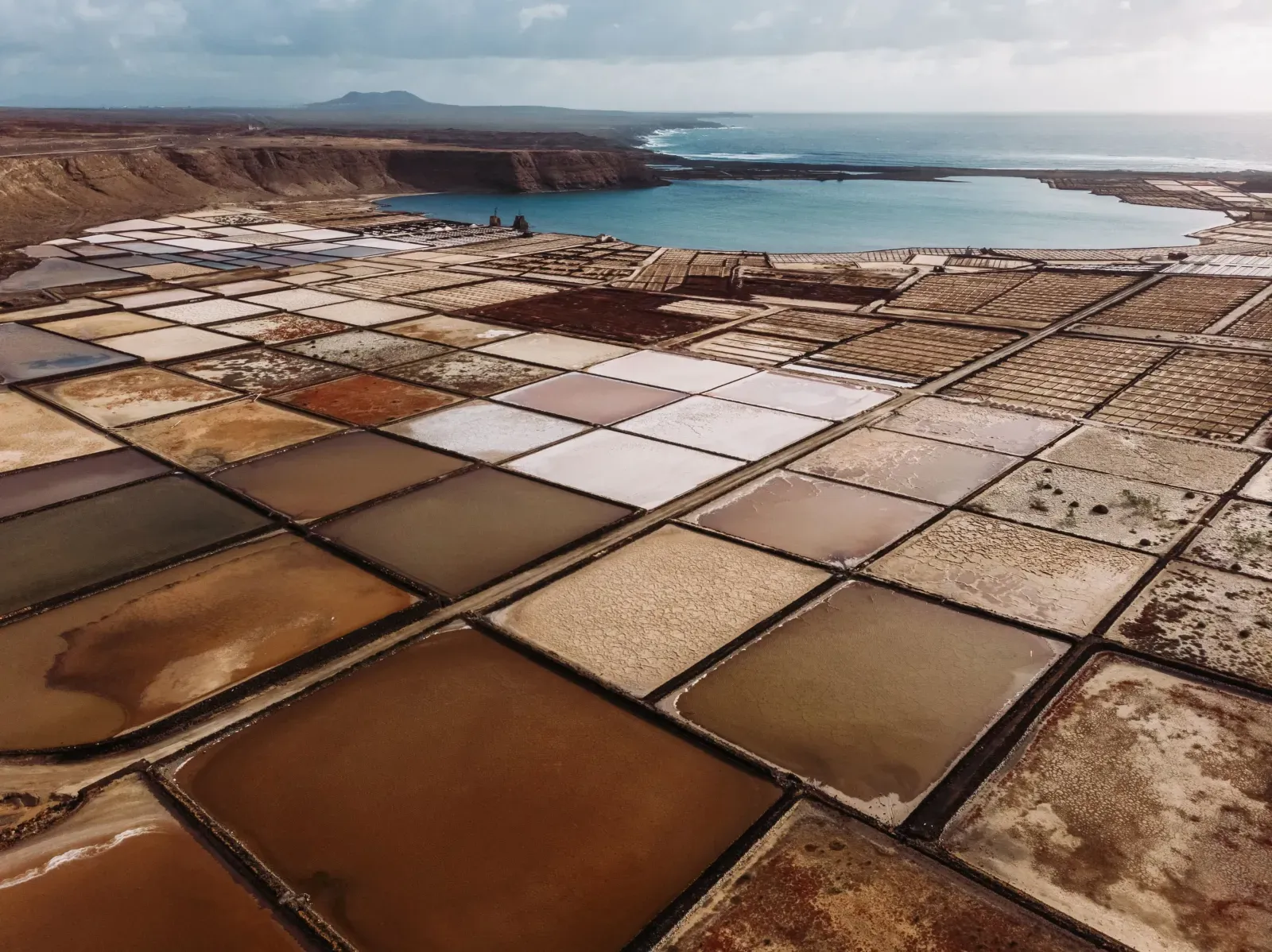
Wondering when to pack your bags for Lanzarote? Good news – this island is a year-round destination. With the sun shining 300 days a year and temperatures that are always mild, Lanzarote is a haven for digital nomads seeking a pleasant climate. But depending on what you're looking for, some times might suit you better than others. Let’s break it down:
Late Spring and Early Autumn: The Sweet Spot
The best time to visit Lanzarote, and the Canary Islands in general, is during late spring (April to June) and early autumn (September to November). During these months, the climate is particularly pleasant, not too hot or too cold, perfect for both working and exploring the island. It can get a bit windy towards November, but nothing too bad.
Summer: For Sun-Seekers and Party-Goers
If you're all about sun, sea, and socializing, summer (July to August) is your season. Be prepared for busier beaches and a livelier atmosphere. While the temperatures rise, the constant wind makes it more bearable. This period is more about leisure activities, so it might not be the top choice for deep work, but it's great for water sports, diving, and enjoying the island’s lively events and nightlife.
Winter: A Mild and Peaceful Retreat
For those who prefer a slower pace, winter (December to March) in Lanzarote is a dream. It's mild compared to much of Europe – think cool evenings and sunny, warm days. This season is ideal for digital nomads who enjoy a more relaxed environment. Winter is also perfect for outdoor enthusiasts keen on hiking and nature exploration, with temperatures that are just right for being active outdoors.
12 Best Things to Do in Lanzarote
1. Enjoy the Stunning Beaches
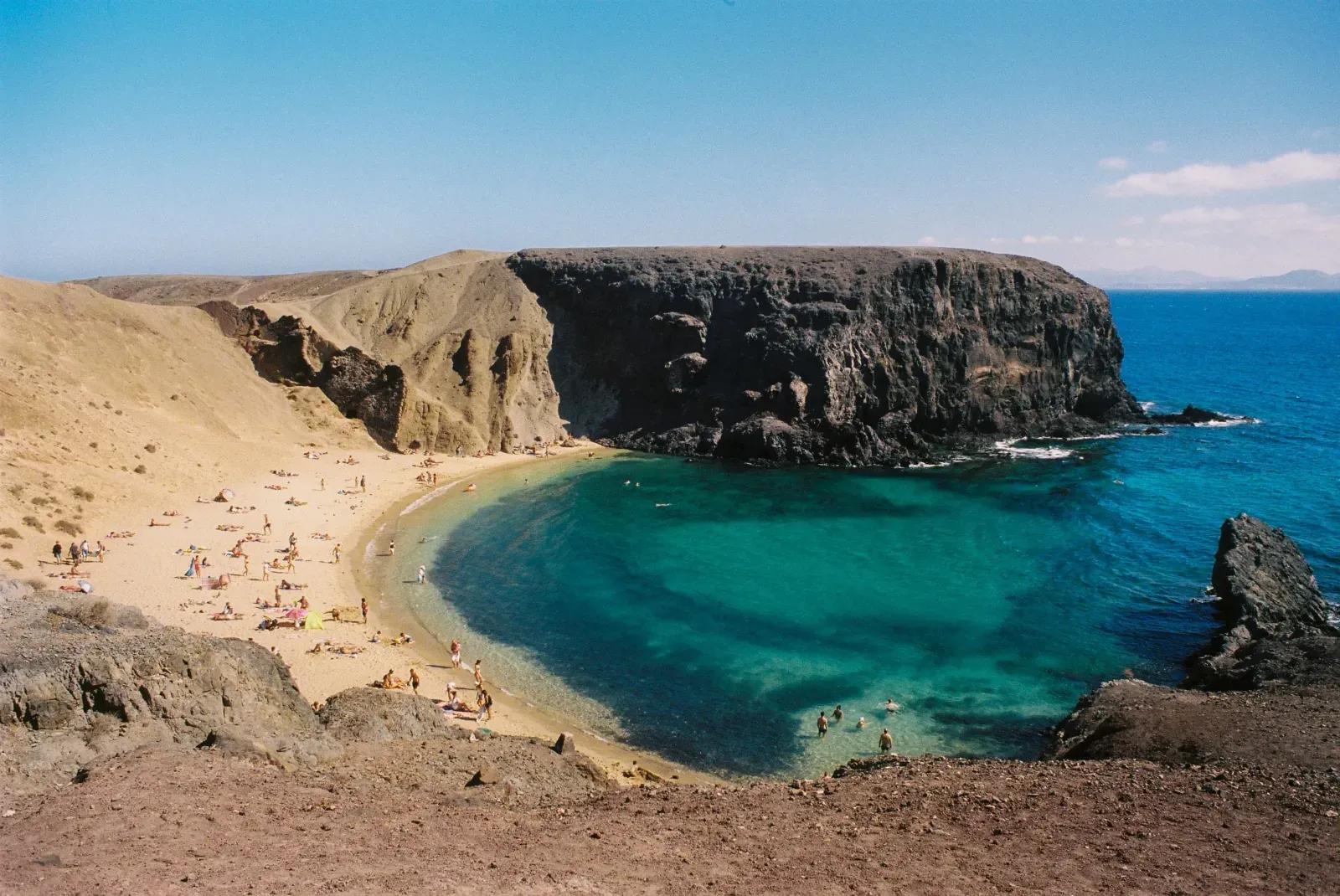
Lanzarote's beaches are a paradise for sunbathing and relaxing. In the south, don't miss the stunning Playa Mujeres and the renowned Playa Papagayo. Just remember, the road to Papagayo is unpaved, and there's a €3 entrance fee until 4:00 pm.
For a more central location, Playa Blanca in Puerto del Carmen and Playa de las Cucharas in Costa Teguise are perfect for a chill day under the sun.
Up north, Caleton Blanco awaits you with its turquoise waters and serene environment, offering a perfect (and well-deserved) break from working.
2. Explore the Museums
Lanzarote's rich history and traditions are showcased in its museums. Highlights include the Tanit Ethnographic Museum, Lagomar Museum, and the Casa Museo del Campesino. The Cesar Manrique House Museum is a tribute to the island's most famous artist.
And for a unique experience, visit the Atlantic Museum - Europe's first underwater museum, featuring the spectacular works of Jason deCaires Taylor.
3. Discover the Cactus Garden
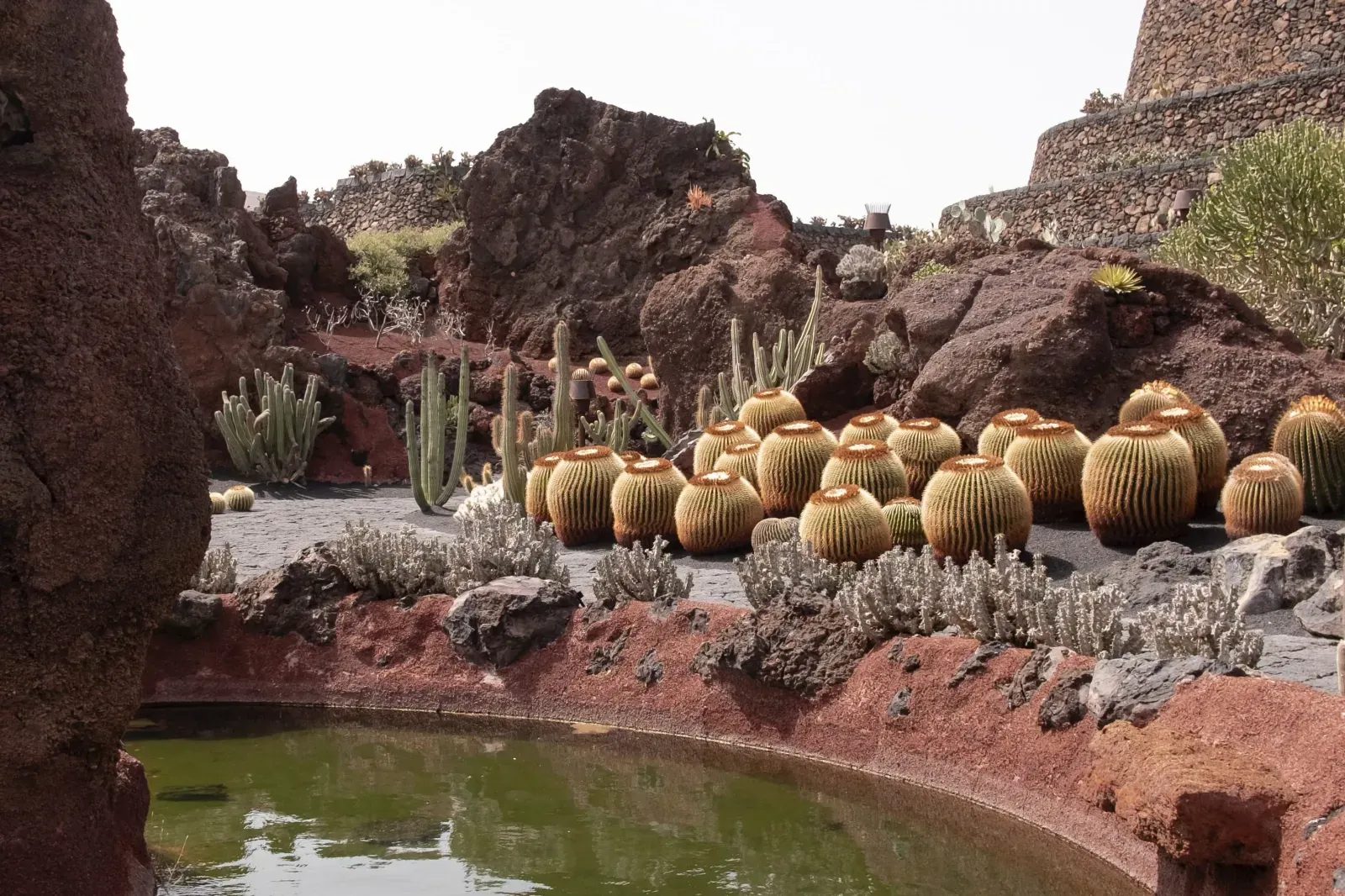
Home to over 1,000 cactus species from across the globe, the Cactus Garden is a must-see. While there, try the famous "cactus burger" for a unique culinary experience!
4. Experience Naturism in Charco del Palo
This small town is known for its open acceptance of naturism. Here, you can stroll the beaches, shop, and even enjoy a coffee in the buff. Nudism is widely accepted in the Canary Islands, making Charco del Palo a uniquely liberating destination.
5. Visit Jameos del Agua
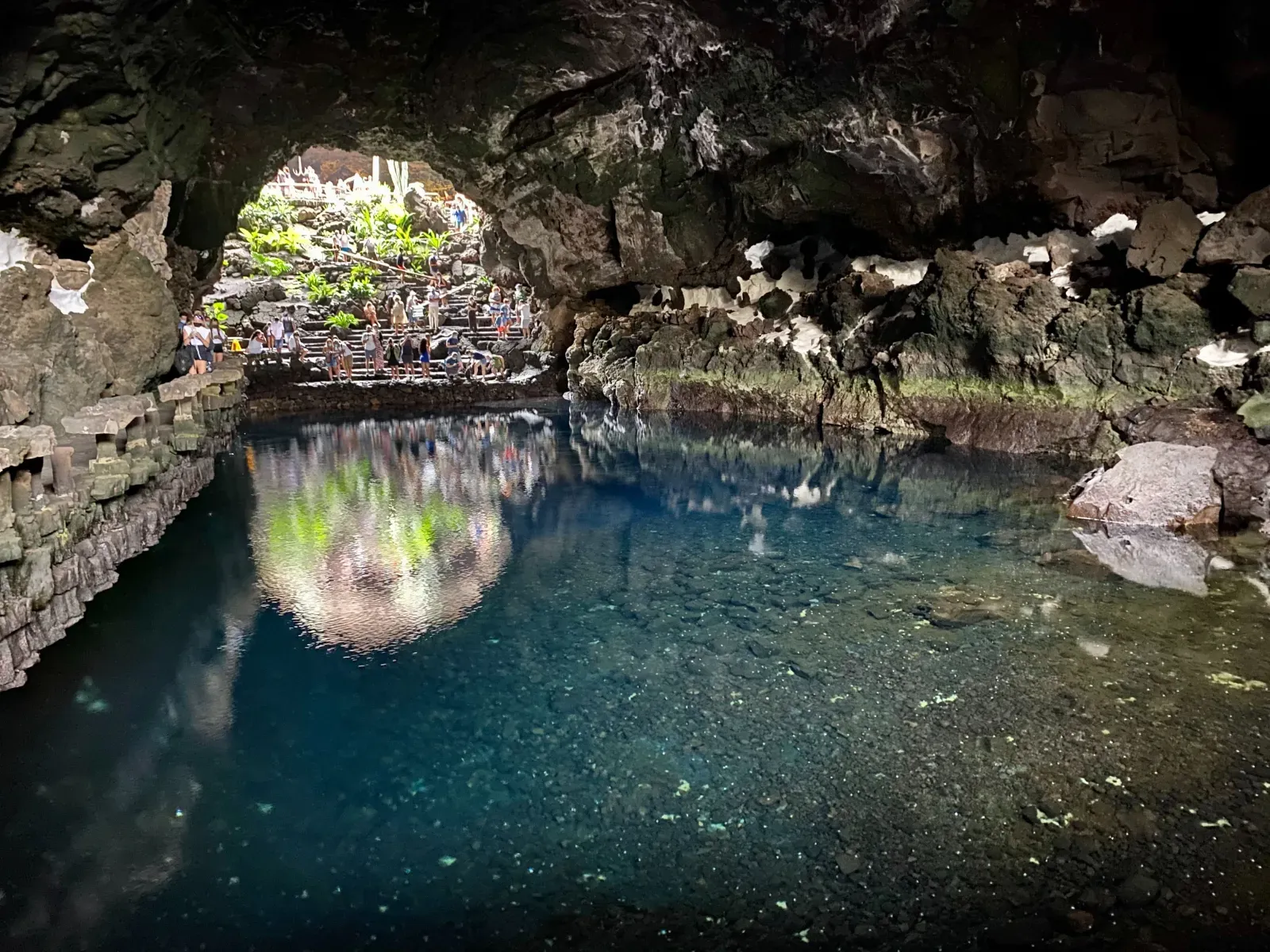
This cultural center, a creation of Cesar Manrique, is a highlight of Lanzarote. With an entrance fee of around €10, explore the Atlantis Tunnel, formed after volcanic eruptions in the 1700s. The center's small lake is home to a rare species of blind, albino lobster, a symbol of the island and a protected species. Don't miss the intriguing House of Volcanoes Museum on site.
6. Enjoy the Views from the Miradors
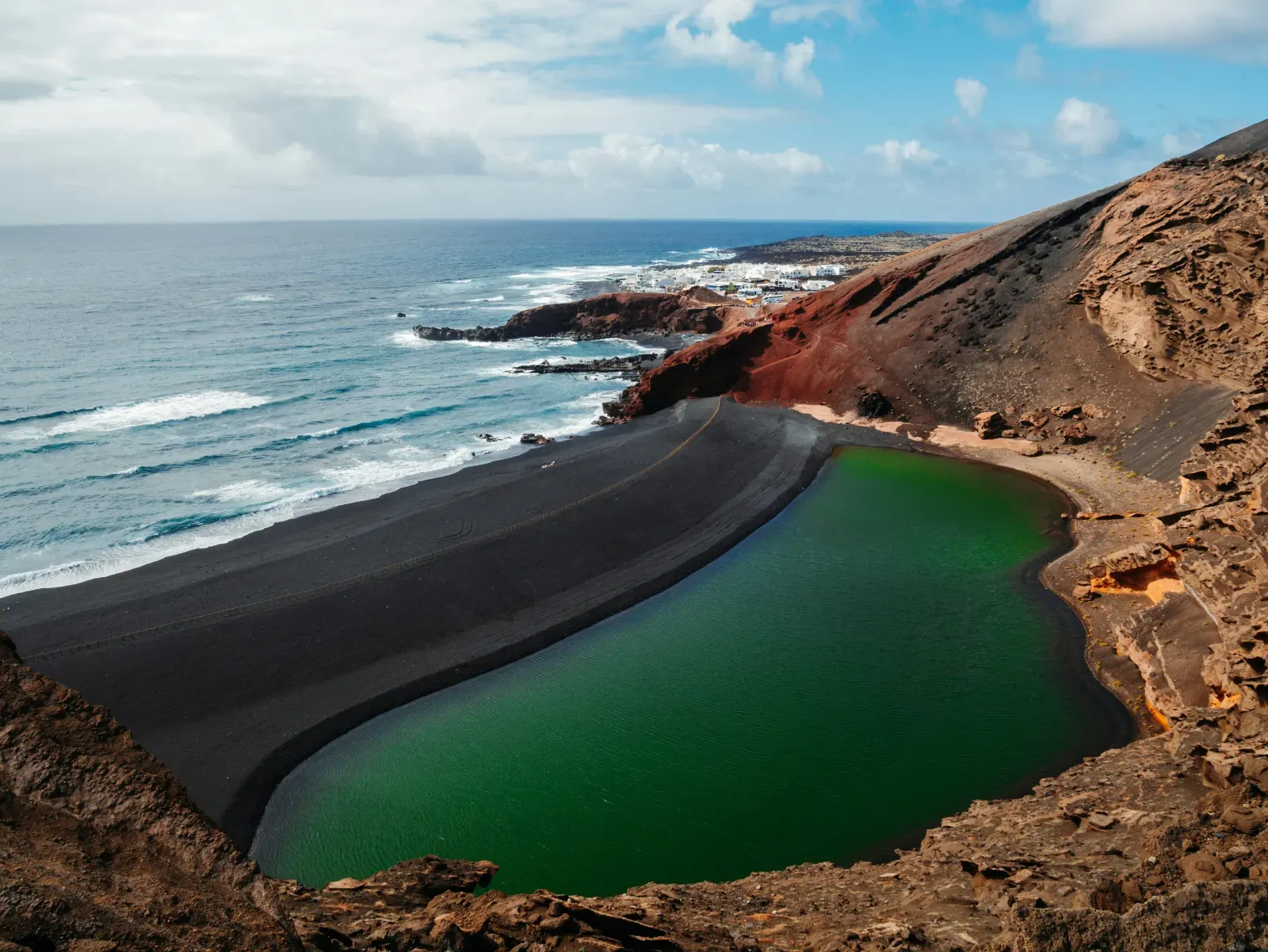
Lanzarote's volcanic landscape offers numerous vantage points for breathtaking views. Notable spots include Mirador del Rio, Risco de Famara, Rincón de Haría, and the Mirador de Ermita de Las Nieves, each offering a unique perspective of the island and the Atlantic Ocean.
7. Take a Day Trip to La Graciosa
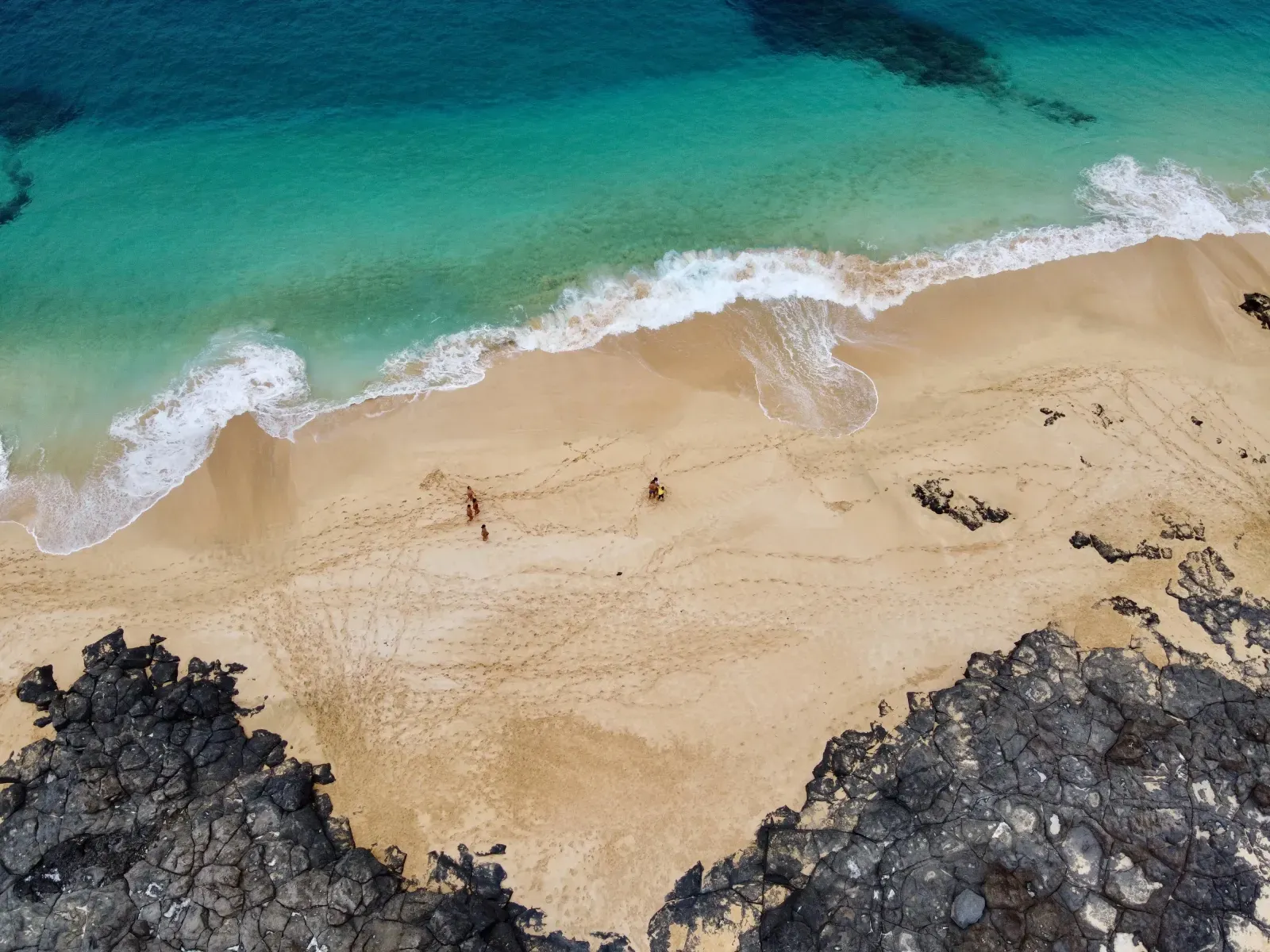
Just north of Lanzarote, La Graciosa is a charming, barren island accessible by ferry from Orzola. Known for its stunning beaches, the island's main town, Caleta del Sebo, offers limited accommodation. It's wise to book ahead if you're planning an overnight stay, though many visitors explore La Graciosa on a day trip for its unspoiled beauty.
8. Explore Haria and Teguise Markets
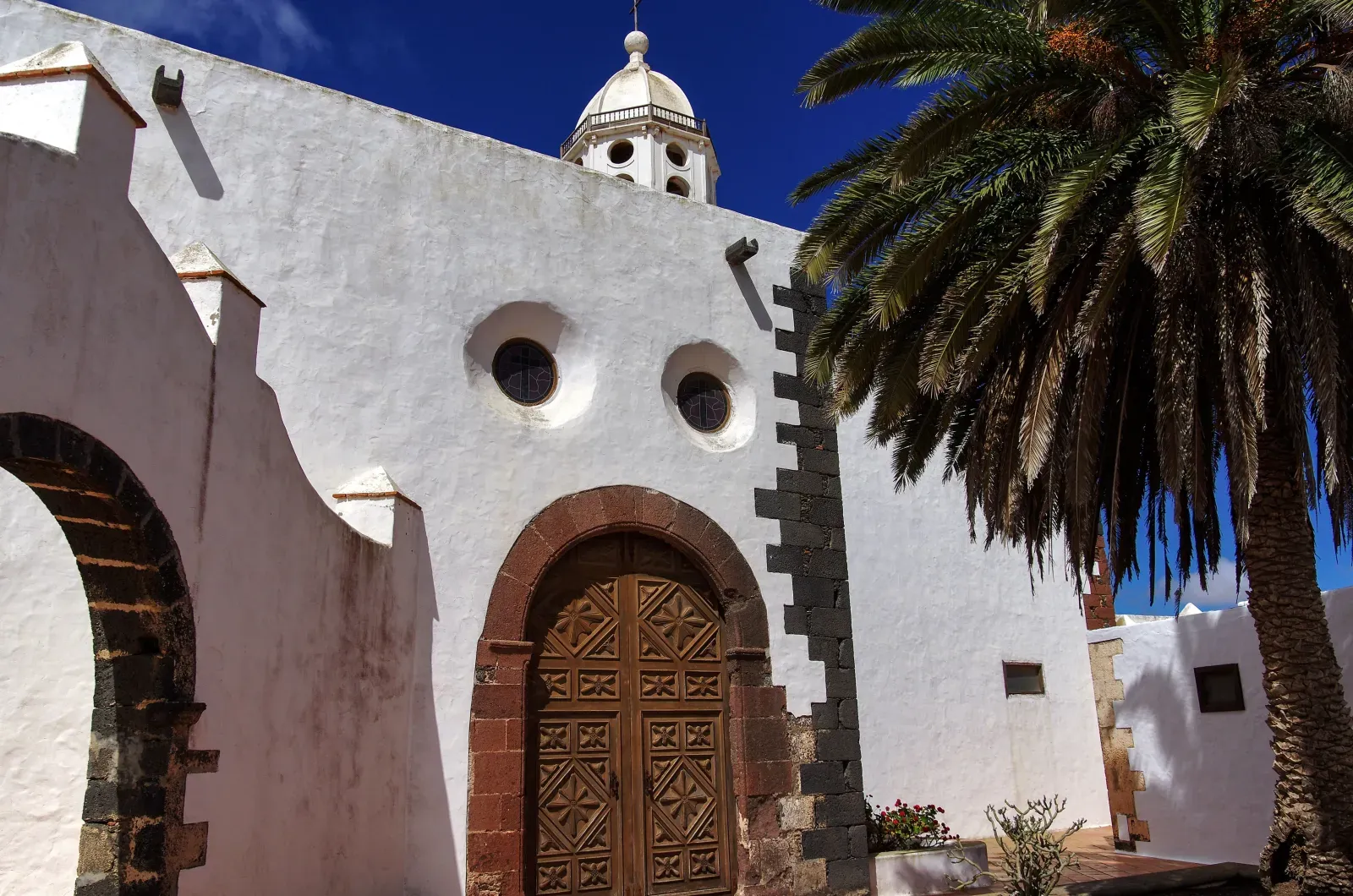
Lanzarote's weekend markets are a delight, especially in Haria and Teguise. The Haria Market, held on Saturday mornings, features a variety of local crafts and food, with artisans proudly displaying their authenticity. One standout is a craftsman who skillfully works with Lanzarote mud and recycled materials. The Teguise Market, the island's largest, transforms the town streets every Sunday morning, bustling with farmers, artisans, and vendors offering local, sustainable products.
9. Surf at Famara Beach
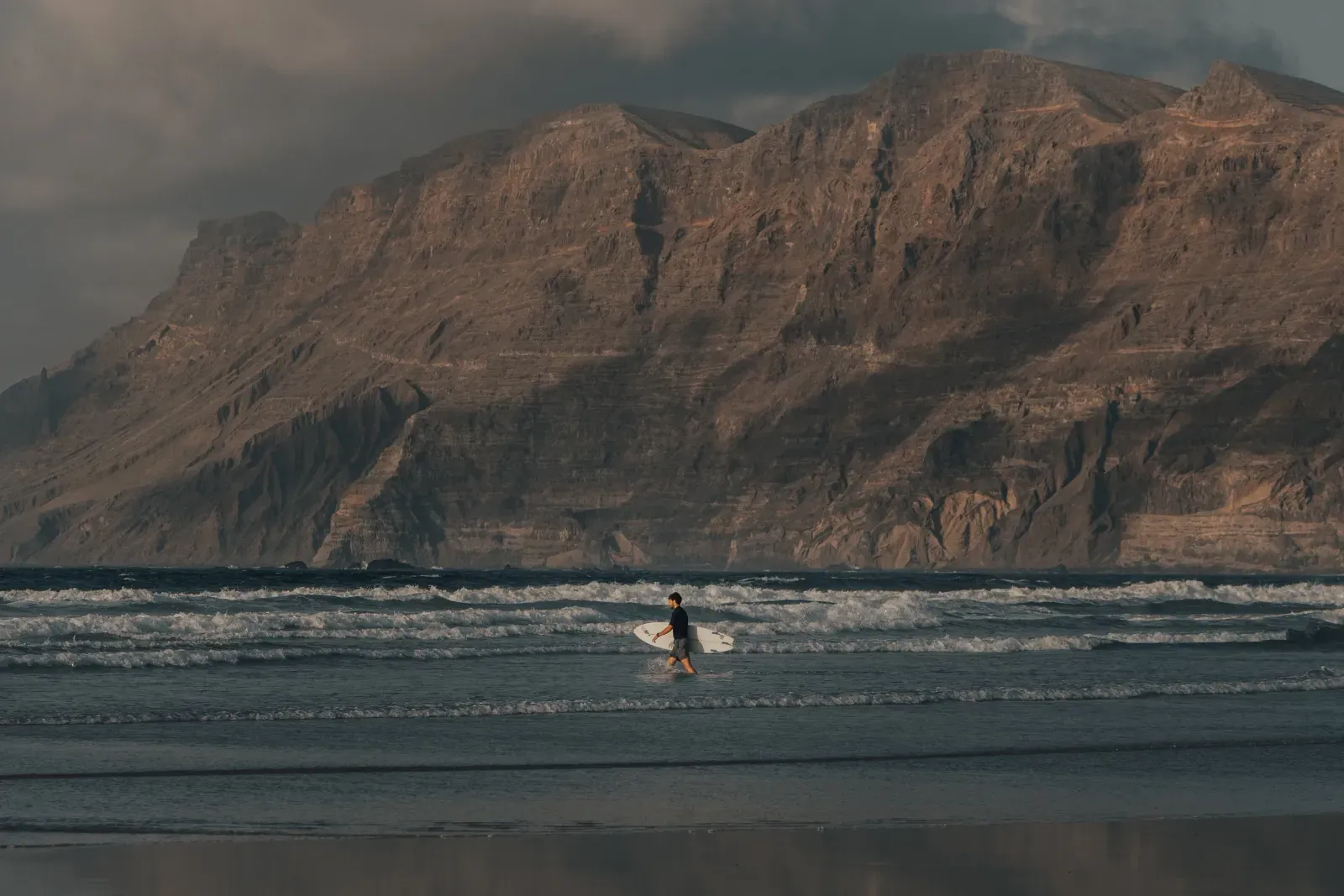
Famara Beach, set against a stunning mountain backdrop, is a surfer's paradise. The surfer community has revitalized this area, making it a vibrant spot for catching waves. Numerous surf schools offer lessons, but swimmers should be cautious of the strong currents and stay near the shore.
10. Visit Timanfaya National Park
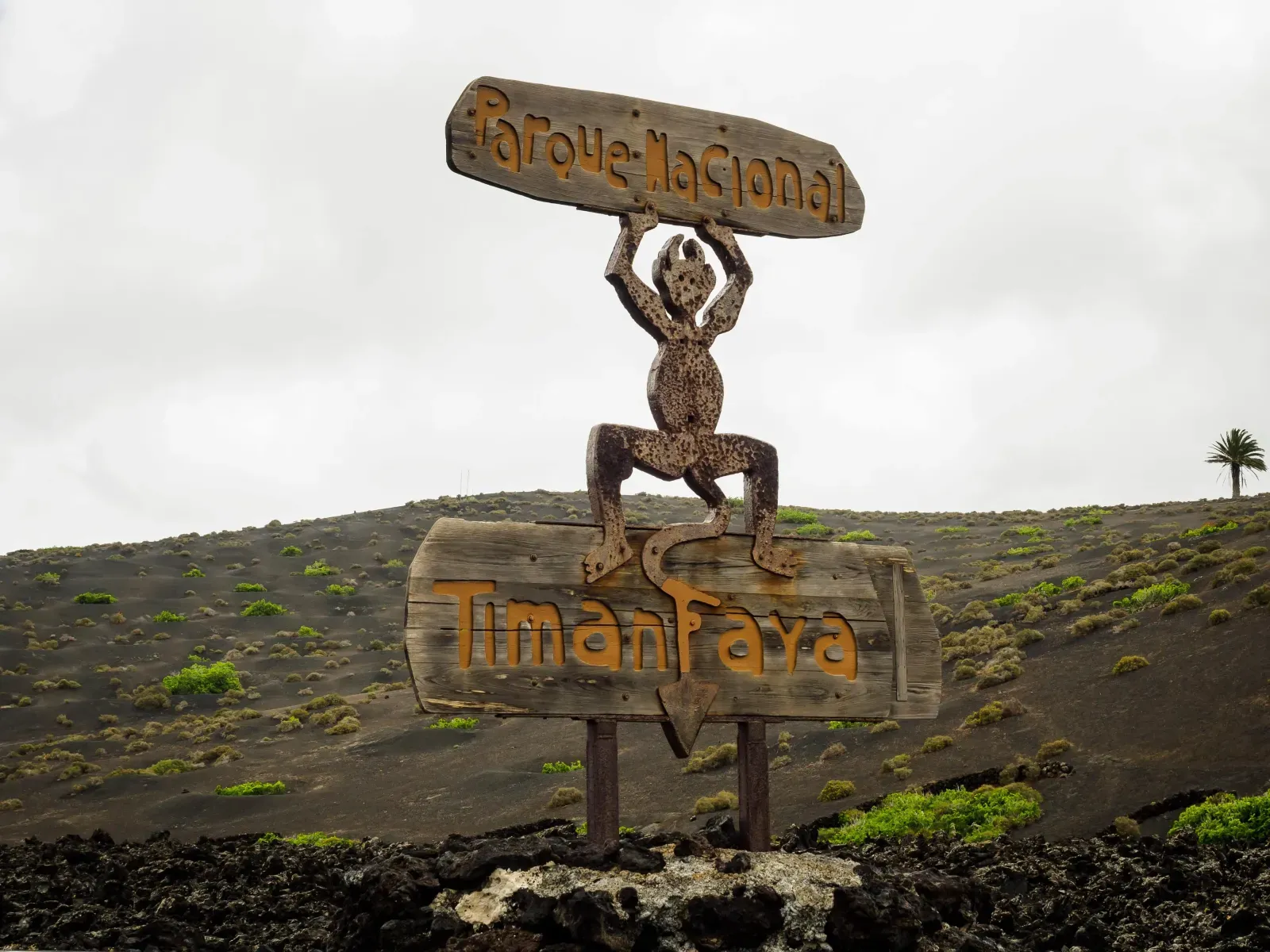
Timanfaya National Park, a testament to Lanzarote's volcanic past, is an absolute must-see. The park's landscape was dramatically altered by eruptions in the 1730s. To explore the park, join one of the organized bus tours starting from the visitor center. Keep in mind that independent exploration isn't allowed, so book your ticket on the official site well
in advance to secure a spot.
11. Admire Las Grietas Rock Formations
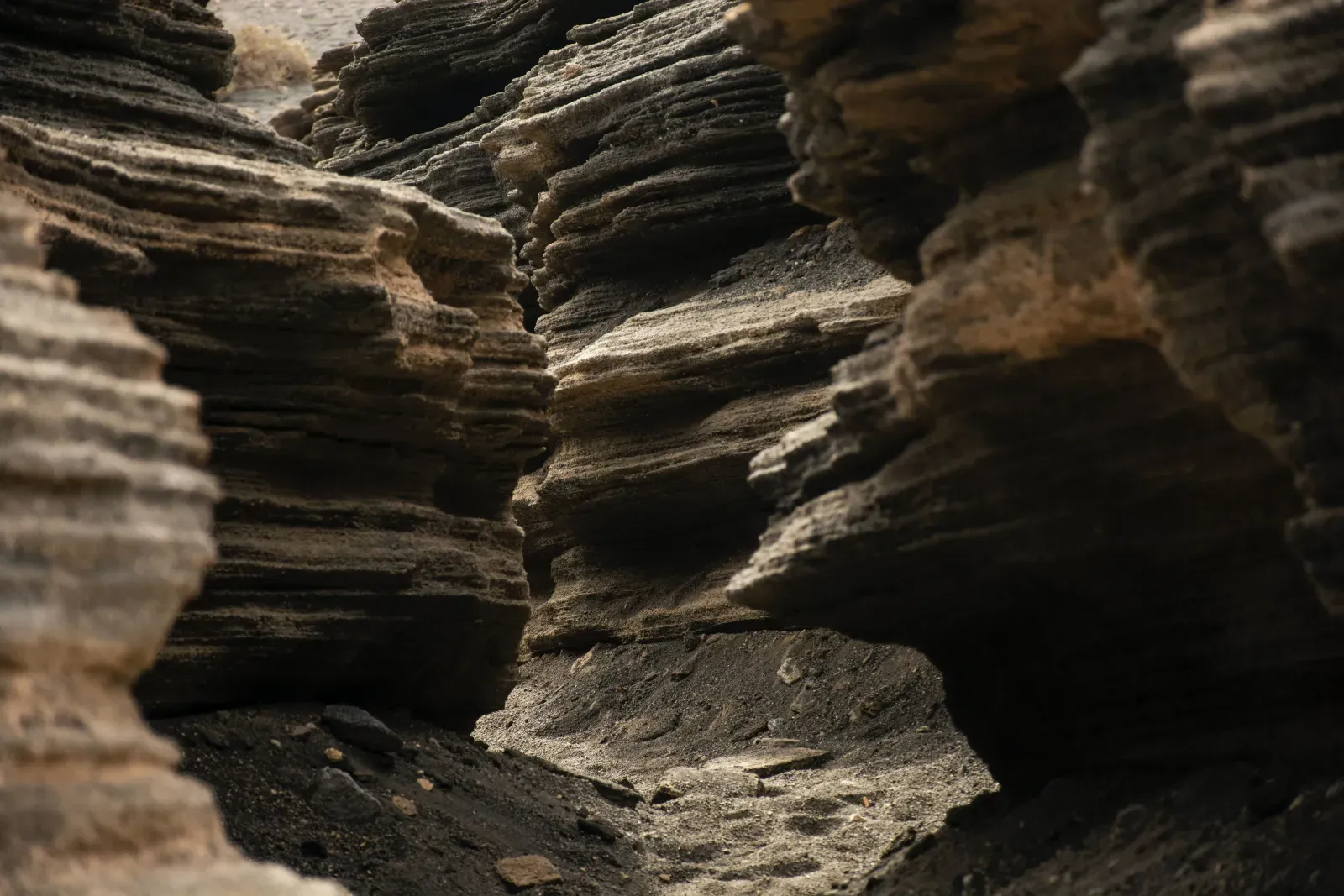
On the road from Tias to San Bartolome lies Las Grietas, a mesmerizing small canyon. Here, you can wander through narrow lava rock paths to experience a place that it's still a hidden gem on the island. This canyon, however, is becoming increasingly popular for its photogenic qualities, making it a favorite spot for Instagram enthusiasts.
12. Taste La Geria Wines
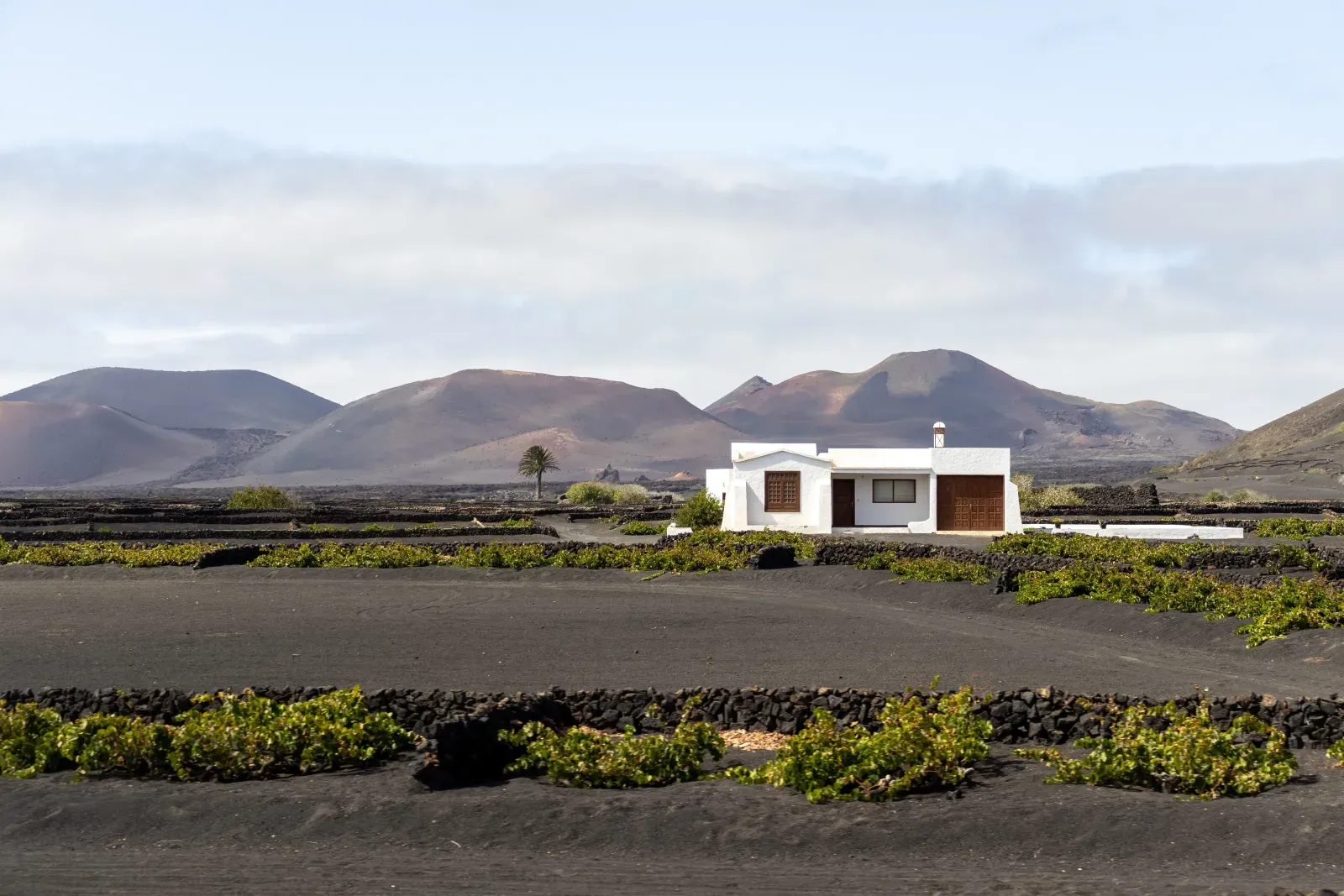
Lanzarote's wine region, La Geria, is renowned for its exquisite wines. The vineyards, nestled among lava rocks, create a stunning contrast of green vines against the black soil. A visit to Bodega La Geria comes highly recommended for the best wine-tasting experience on the island.
Is Lanzarote Safe?
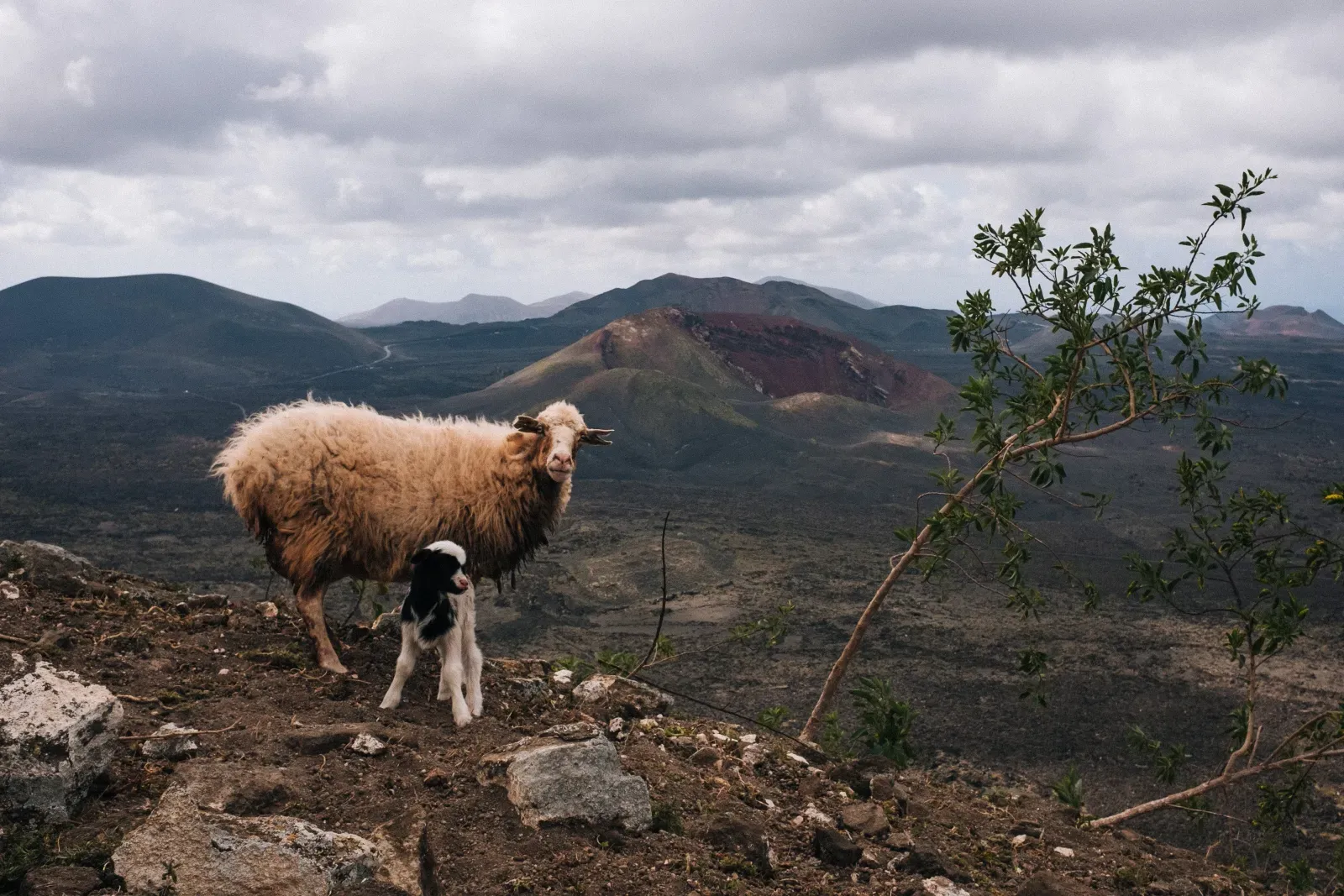
Absolutely! Lanzarote, like the rest of the Canary Islands, is a very safe place to live and work. As with any tourist destination, it's wise to keep an eye on your valuables, especially in crowded areas. But these are just common-sense precautions you'd take anywhere. So, relax and soak up the magic of these enchanting islands without worry.
Visa Requirements in Lanzarote
If you're a digital nomad eyeing Lanzarote as your next digital nomad destination, understanding Spain's visa requirements is crucial. Here's a quick breakdown to help you plan:
Short Stay Tourist Visa
For stays up to 90 days within a 180-day period, many visitors (including passport holders from Europe, the USA, Canada, and Australia) don't need a visa to enter Spain. This agreement makes it extremely easy for you to travel and work within the Schengen area for short-term visits.
Long-Term Stay Options
Planning to stay longer than 90 days? Consider the Non-Profit Visa or the Self-Employment Visa. The Non-Profit Visa is perfect for those who own or work for a company located outside of Spain. On the other hand, the Self-Employment Visa is ideal if you're looking to start a business or work as a freelancer in Spain.
Bonus: Van Life Tips in Lanzarote
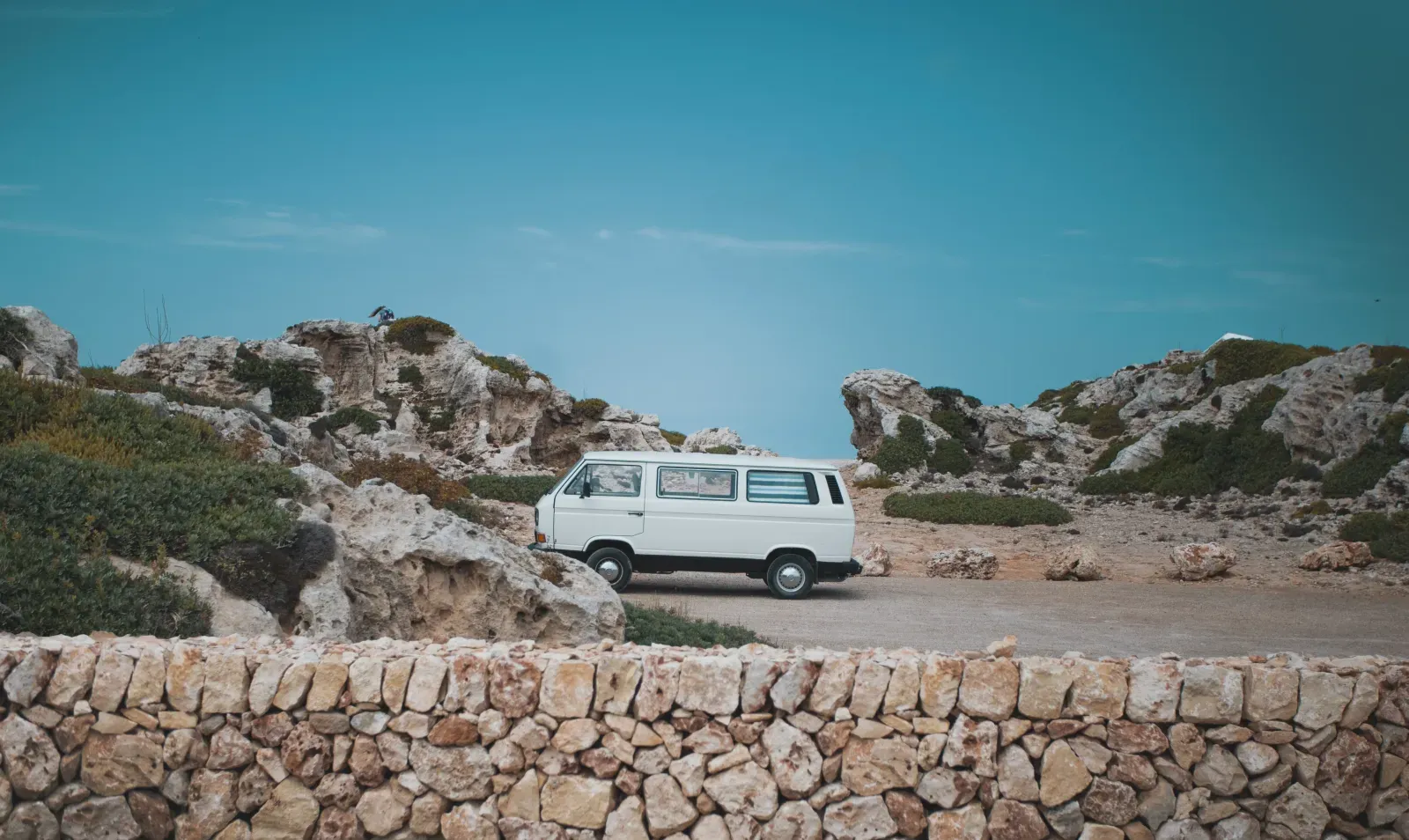
Did you know that Lanzarote is a top European destination for van life enthusiasts? The island's stunning landscapes, safety, and unique spots are any van-lifer's dream. In the Canary Islands, van life isn't just a trend; it's practically a way of life.
Renting a Van
Finding a van for your adventure is pretty easy. You can book online through platforms like Yescampa or even Airbnb. Rental prices range from about €700 for 10 days to over €1300, depending on the time of year and van features.
Essential Vanlife Tips
- Water and Waste Management: Be mindful of where to dispose of black and gray water and where to refill drinking water. Service stations are somewhat limited, mostly found near Arrecife. If you're heading towards Orzola, plan your water and waste needs in advance.
- Stay Organized: The Park4night app personally was a lifesaver for me. It lists all the petrol stations, parking spots, campsites, and parks where you can stop and stay overnight. pretty cool, right?
- Connectivity on the Road: For us digital nomads, staying connected is key. Consider getting an eSIM for hassle-free work from your van.
Ready to Make Lanzarote Your Next Nomad Destination?

Join our global
digital nomad community
Join us for free
Freaking Nomads is supported by you. Clicking through our links may earn us a small affiliate commission, and that's what allows us to keep producing free, helpful content. Learn more
Read Next
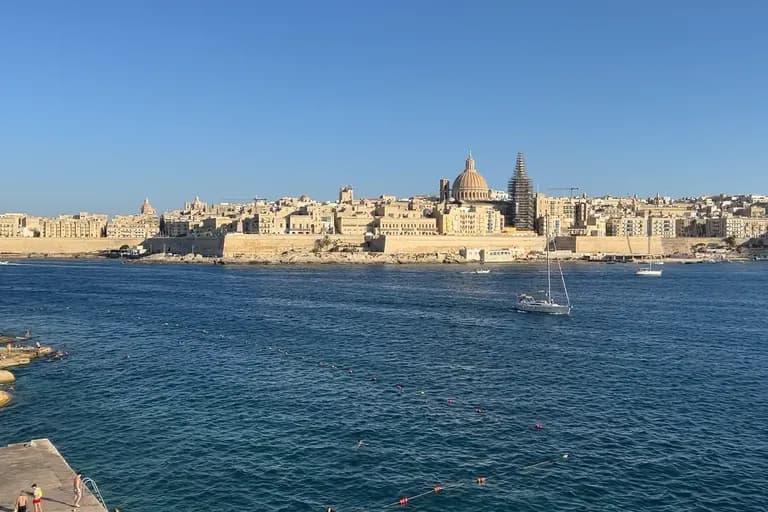

Guide to Living in Malta as a Digital Nomad
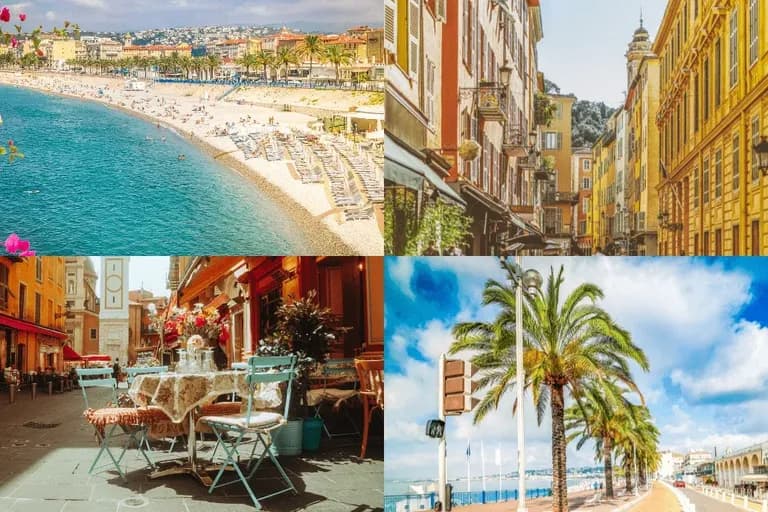
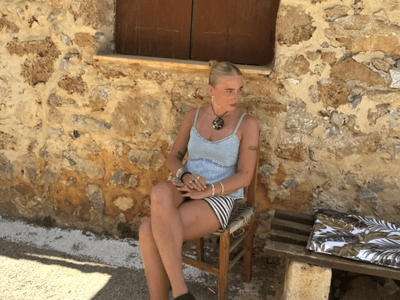
The Ultimate Digital Nomad Guide To Nice


